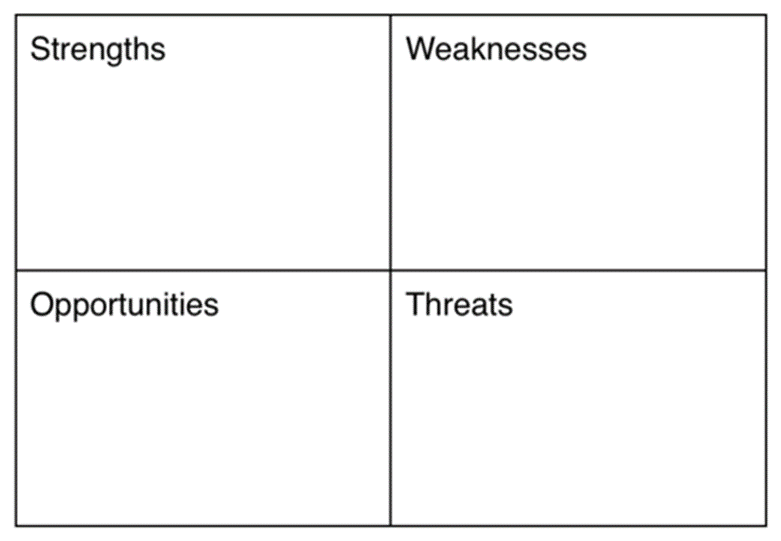Healthcare has dramatically evolved over the years, and so has the recognition and acceptance of alternative therapies like acupuncture, massage therapy, and chiropractic treatment. Today, an increasing number of insurance companies cover these services, leading to an intricate maze of health insurance claims processing. This blog post aims to help you better comprehend the insurance billing process for alternative therapies and how to optimize it for your practice.
Navigating the Health Insurance Landscape
Firstly, understanding the basics of health insurance is paramount. Every policy comes with its own set of terms, conditions, and coverage limits. Depending on the policy, specific alternative therapies may be fully, partially, or not covered at all. Moreover, insurance policies often contain intricacies like deductibles, co-payments, and out-of-pocket limits, impacting how much a patient pays for your services.
Coding: The Language of Health Insurance
In the realm of insurance billing, coding is a universal language. Procedures, diagnoses, and medical services are translated into specific codes, which insurance companies use to determine coverage and reimbursement. For instance, acupuncture services might use CPT (Current Procedural Terminology) codes, while diagnoses are coded using ICD-10 codes. Understanding these codes and using them correctly is essential for successful claims processing.
Submitting a Claim
Once a service has been rendered and coded, it’s time to submit a claim to the insurance company. This usually involves filling out a standardized form electronically or on paper and sending it to the insurer. The claim provides detailed information about the patient, the provider, the services rendered, and the associated charges.
Managing Rejections and Denials
Despite best efforts, not every claim is accepted on the first try. Insurance companies might reject a claim if there’s an error or omission in the form or deny a claim if they deem the service unnecessary or outside the patient’s coverage. Understanding the reasons behind rejections and denials can help refine your billing process and increase your success rate.
Embracing Automation with Practice Management Software
Today, many practices simplify insurance billing with practice management software and insurance billing services. Such solutions can streamline claims processing, reduce administrative workload, and help avoid common errors that lead to rejections and denials.
The Holbie Advantage
Holistic Billing Services offers Holbie a comprehensive practice management solution tailored explicitly for providers of alternative therapies. Our software simplifies the billing process, helping you easily navigate the complex landscape of health insurance. Moreover, we keep up-to-date with the latest coding changes and insurance trends, ensuring that your practice stays compliant and optimized for maximum reimbursement.
Final Thoughts
Understanding health insurance claims processing can seem daunting, but it becomes manageable with the proper knowledge and tools. By mastering insurance fundamentals, staying current with coding changes, and leveraging technology, you can optimize your billing process, improve cash flow, and focus more on patient care. If you need support navigating the insurance maze, consider partnering with a specialist like Holbie. We’re here to make insurance billing easier and more efficient for your practice.
Contact us today for more information on how Holbie can assist with your insurance billing needs.
As we navigate the digital revolution, holistic practitioners increasingly recognize the value of integrating technology into their practice. For acupuncturists, chiropractors, and massage therapists, this includes adopting online payments and practice management systems to manage their practice more effectively. In this blog, we’ll explore the benefits of these integrations and how they can enhance the wellness practice.
Online Payments: Convenience at Your Fingertips
Embracing online payment systems offers numerous advantages to both practitioners and patients. Firstly, it allows for increased convenience. Online transactions eliminate the need for cash on hand and streamline the payment process, creating a more enjoyable experience for your clients.
Moreover, online payments can enhance business efficiency by speeding up transaction times and reducing administrative tasks. It ensures instantaneous payment processing, minimizing any delay in revenue realization. Lastly, online payment systems are increasingly secure, protecting sensitive client information. These systems use encryption to safeguard data, giving you and your patients peace of mind.
Practice Management: A Path to Business Clarity
Accurate practice management software is crucial for the sustainable growth of any wellness practice. Integrating practice management software into your operations gives you real-time insights into your practice’s financial health. This not only aids in better decision-making but also helps you spot potential issues before they become significant problems.
Integrated practice management allows for easy monitoring of revenue streams, including patient payments, insurance reimbursements, and product sales. It can also aid in expense tracking, helping you manage overheads effectively.
Moreover, practice management systems simplify tax preparations by maintaining organized records of your income and expenses. It eliminates the time-consuming process of sorting through piles of paperwork during tax season.
Integrating Online Payments and practice management with Holbie
At Holistic Billing Services, we understand the specific needs of holistic healthcare providers. Our innovative practice management software Holbie is designed to integrate seamlessly with your practice with our online payment systems, SOAP notes, and practice management tools, creating a comprehensive solution for your practice management needs.
Our software allows you to accept online payments effortlessly, providing your clients a smooth, convenient experience. Simultaneously, our robust practice management features ensure you always have a clear picture of your practice’s financial health.
In Conclusion
As the healthcare landscape continues to evolve, it’s more important than ever for wellness practitioners to adapt and innovate. Integrating online payments and practice management into your practice can enhance convenience, improve efficiency, and provide valuable insights into your business operations. With Holbie’s all-encompassing practice management software, you can simplify your processes and focus on what truly matters – transforming lives through holistic healthcare.
Are you interested in seeing how Holbie can benefit your practice? Get in touch with us today to learn more.
As a massage therapist, you are often juggling several roles. From managing appointments, maintaining client records, and handling billing to focusing on providing exceptional care to your clients – it can all become overwhelming. The good news? It doesn’t have to be. Thanks to technology advancements, specifically in the area of practice management software, practitioners now have powerful tools to streamline their operations. At the forefront of these advancements is Holbie Practice Management Software from Holistic Billing Services, specifically designed for practitioners like you.
What is Holbie Practice Management Software?
Holbie Practice Management Software is an all-in-one tool created to manage and simplify various administrative tasks within your massage therapy practice. From online scheduling to electronic health records (EHR), insurance billing, and much more – Holbie is designed to optimize your practice’s efficiency, leaving you with more time to focus on your client’s care.
Scheduling Simplified
One of the critical features of Holbie’s software is online scheduling. According to a study by Accenture, 68% of patients said they are more likely to choose medical providers who offer digital scheduling. This feature allows your clients to book, reschedule or cancel their appointments online at their convenience. It also sends out automated reminders to your clients, significantly reducing no-show rates.
Easy-to-Use Electronic Health Records
Maintaining up-to-date, comprehensive health records is an integral part of a massage therapist’s role. Holbie includes an EHR system that is tailored to the needs of a massage therapy practice. It allows you to quickly input SOAP notes, upload relevant files, and maintain an organized record of your client’s health history, treatment plans, and progress – all in a secure, HIPAA-compliant manner.
Streamlined Insurance Billing
Navigating the complexities of insurance billing can be a significant challenge for many massage therapists. Holbie software includes an insurance billing feature that simplifies this process. Whether you’re managing superbill generation, claim submissions, or tracking your reimbursements, Holbie’s insurance billing feature has you covered.
A Bird’s Eye View of Your Practice
Holbie also provides practice management tools, giving you an overview of your practice’s performance. By offering insights into your busiest days, average client visits, revenue trends, and much more, it helps you make data-driven decisions to grow your practice.
Why Choose Holbie?
So why choose Holbie? Holbie is designed to be user-friendly, ensuring that you and your staff can navigate the system with ease. The software is also accessible anytime, anywhere, giving you the flexibility to manage your practice outside of the office or on the go.
On top of that, Holbie is dedicated to continually developing innovative solutions to meet your ever-evolving needs. When you opt for Holbie Practice Management, you choose a partner committed to your practice’s success.
Running a successful massage therapy practice goes beyond providing excellent patient care. It also involves effectively managing the various administrative tasks that keep your practice running smoothly. With Holbie, you can streamline your operations, enhance your service delivery, and focus more on what you do best – providing exceptional massage therapy to your clients.
So, are you ready to simplify your practice and amplify your impact? Contact Holbie today to discover how our Practice Management Software can revolutionize your massage therapy practice. You can also book a demo to experience firsthand how Holbie can benefit your practice.
Remember, Holbie is not just software – it’s a partner dedicated to your success. Reach out today and take the first step toward simplifying your practice.
In an era where technology is advancing at an unprecedented pace, maintaining a tech-savvy acupuncture practice can be a game-changer. Electronic Health Record (EHR) systems have become an essential component of effective practice management. In fact, a study conducted by the National Center for Health Statistics (NCHS) found that as of 2017, nearly 9 out of 10 (86%) of office-based physicians have adopted an EHR system. But how do you choose the right one for your acupuncture practice? Here are some tips to guide your decision-making process.
1. Understand Your Specific Needs
Every practice is unique, with varying requirements for software functionality. A study published in Perspectives in Health Information Management suggests that the practice’s needs should guide the selection of an EHR system. Understanding your clinic’s workflow, size, patient volume, and the specific features that will benefit your practice can help narrow down your choices.
2. Evaluate Usability and User Interface
According to a survey by the American Medical Association (AMA), 54% of providers expressed dissatisfaction with their EHR systems due to poor usability. Hence, the software’s user interface should be intuitive and easy to navigate, reducing the learning curve and enabling you and your staff to operate it effectively.
3. Ensure Data Security and Compliance
Patient data security is critical. A study by the Ponemon Institute found that healthcare data breaches cost $6.45 million on average. Thus, the EHR system you choose should comply with all necessary regulations, such as HIPAA, and provide robust data security measures.
4. Check Interoperability
The ability to share patient information with other healthcare providers is a significant advantage of EHR systems. According to the Office of the National Coordinator for Health Information Technology, 93% of hospitals had EHR technology to view, exchange, and receive health data with other health providers in 2015.
5. Consider Pricing and ROI
EHR systems can be an investment. However, when chosen wisely, they can provide substantial ROI through increased efficiency, improved patient satisfaction, and reduced administrative costs.
6. Test Customer Support and Training
Effective customer support and training are crucial for a smooth transition to a new EHR system. Therefore, opt for vendors who offer comprehensive onboarding and continuous support.
In conclusion, choosing the right EHR system for your acupuncture practice involves careful consideration of your unique needs, usability, data security, interoperability, pricing, and support. By taking the time to assess your options thoroughly, you can find a system that not only simplifies your practice management but also amplifies your impact on your patient’s health and well-being.
Are you still wondering how to make the right choice? Holbie offers an EHR system specifically designed for acupuncturists, chiropractors, and massage therapists, ensuring all your unique needs are covered. Feel free to get in touch with us to learn more.
We have offered holistic providers complete medical billing and coding services since 1999, so we understand what makes medical billing and coding successful. In this article, we share our knowledge to assist you in selecting the best service for your medical practice.
Medical coding and billing are crucial components of any healthcare operation. It guarantees rapid and accurate claim processing, which results in quick reimbursements and improved revenue cycle management. The effectiveness and profitability of your clinic can be considerably impacted by your choice of medical billing and coding company, which can be challenging. This article will review the essential medical billing and coding service elements. In addition, we’ll also share tips on how to find the best fit for you.
Knowledge and Skills
Experience and industry knowledge are the most critical factors when selecting a medical billing and coding service. Please search for a business with a successful track record and extensive expertise working with medical practices like yours; this helps to ensure that they know the particular difficulties faced by your practice and have the knowledge and tools necessary to address them.
Security and Compliance
The field of medical coding and Billing is very regulated. Selecting a service that prioritizes adherence to pertinent healthcare laws, including the Health Insurance Portability and Accountability Act (HIPAA), is crucial. Be sure the business you choose maintains stringent security measures to guard sensitive patient data from data breaches and illegal access.
Flexibility and Personalization
Your billing and coding provider should be able to adjust to your particular demands because every medical practice is different. To create a customized solution for your practice’s billing and coding needs, look for a provider that offers customizable solutions and will collaborate closely with your staff.
Automation
A professional medical billing and coding service should use the most up-to-date technology to optimize revenue collection, speed up the billing process, and decrease errors. Faster claim processing and more precise reimbursements will result from this. To increase productivity and reduce manual input, look for a company that uses software and automation whenever possible.
Pricing and Contract Terms
Considering the price and contract details when assessing billing and coding services is critical. In addition to their fees, which are typically based on a percentage of collections, you should carefully read the contract terms to comprehend the range of services offered, the method of payment, and any potential penalties or termination clauses. Seek transparent pricing models with no hidden costs that fit your practice’s budget.
Customer Support and Responsiveness
When it comes to billing and coding, excellent customer support is essential. You want a business that will address your needs and problems. To receive individualized support and guidance through the billing process, look for a service that provides dedicated account management or a point of contact.
Testimonials
One of the best methods to evaluate a medical billing and coding service’s success is to look at client references. Choose a business with a good reputation. As the saying goes, past performance is the best indicator of future performance. A more excellent grasp of their track record and assistance in making an informed choice will come from their business references.
Ongoing Support
A good medical billing and coding firm should also offer continuing training and assistance to your employees, so they stay informed about changes in the field and best practices. Regular updates on coding standards, educational webinars, or specialized training events fall within this category.
Six Pointers to Help You Choose the Best Medical Coding and Billing Company
Here are some suggestions to help you choose the best medical billing and coding service for your clinic now that you are aware of the elements to take into account:
Research
Start by researching the many medical billing and coding services that are offered. Search for suppliers with expertise dealing with comparable businesses or specializing in your specialty. Compile a shortlist of prospects based on their qualifications, knowledge, and client testimonials.
Compare
Request proposals from the vendors you are considering. Use the proposals to compare each company’s services and reduce your candidates. Information about their services, price, technological solutions, and compliance procedures should all be included in a thorough presentation.
Schedule
Make appointments to speak with the leading candidates on your list before deciding. Ask them about their background, offerings, and how they may assist your practice in streamlining its billing and coding procedures during these encounters. Please take advantage of the chance to evaluate their receptivity, communication abilities, and willingness to adapt their services to your demands.
Check
Make an effort to reach out to the clients listed on the references provided by each prospective organization. You’ll be able to learn directly about their effectiveness, customer service, and general experience.
Evaluate
Understanding the vendor’s onboarding procedure is crucial because switching to a new medical billing and coding service can be difficult. Analyze their capacity to work with your current systems, impart knowledge to your personnel, and offer continuing assistance during the transition.
Consider
It’s crucial to consider a medical billing and coding service’s long-term profitability while making your choice; this entails assessing its financial standing, room for expansion, and resolve to keep up with market developments. A strong and progressive organization will likely support the long-term success of your practice.
Conclusion
Your choice of medical billing and coding provider can dramatically impact the effectiveness and profitability of your practice. You may find a provider who meets your needs and aids in the optimization of your revenue cycle management by considering variables like experience, compliance, technology, and cost. Take your time with the decision-making process; instead, consider each prospective provider before selecting the best fit for your practice’s particular needs.
How does this relate to an EHR and insurance billing company focused on acupuncture, chiropractic, and medical-massage billing? While you are busy vetting other vendors, your time can be free of tedious technology or complicated medical coding and billing process. By letting the best firm focused on integrative healthcare Holistic Billing Services handle your online appointments, SOAP notes, or medical billing needs, your energy, creativity, and talents are freed up to focus on identifying and serving your patients. The friendly experts at Holistic Billing have over 20 years of experience and are eager to help you succeed in EHR and Medical Billing! Contact us today to get started building a solution that suits your acupuncture practice needs and goals.
Outsourcing medical billing and coding is becoming popular for many healthcare providers, including acupuncturists, chiropractors, and licensed massage therapists. With the ever-increasing complexity of healthcare regulations, the time-consuming administrative tasks involved in medical billing and coding, and the need for greater accuracy, outsourcing has emerged as the most practical and cost-effective solution for holistic and integrative medicine providers. This blog will discuss the benefits of outsourcing medical billing and coding for this healthcare segment.
Improved Revenue Cycle Management
Outsourcing medical billing and coding to a third-party provider can help ensure claims are submitted accurately and on time; this can help practitioners avoid payment delays and reduce the number of denied claims.
Reduced Administrative Burden
Whether you are an acupuncturist, chiropractor, or massage therapist, you already have too much on your plate, including patient care, medical research, and teaching. With the added responsibility of medical billing and coding, you are likely overburdened and find it challenging to manage your workload effectively. Outsourcing medical billing and coding can help alleviate this burden by freeing up your time and allowing you to focus on other core responsibilities.
Access to Expertise
Medical billing and coding are highly specialized skills that require specialized training and experience, which most providers do not have. The benefits of outsourcing billing and coding to a third-party provider gives your practice access to a team of experts, up-to-date with the latest changes in healthcare regulations and coding guidelines; this ensures that claims are processed accurately, resulting in fewer payment delays and denied claims.
Cost Savings
Outsourcing medical billing and coding can also help you save money. Hiring and training a dedicated billing and coding staff can be expensive. Maintaining a billing and coding department can add up quickly. Outsourcing can reduce these costs by eliminating the need for additional staff and technology infrastructure.
Increased Efficiency
Medical billing and coding can be time-consuming and tedious tasks. Outsourcing can help you streamline these processes. Third-party providers have specialized tools and strategies designed to maximize productivity and accuracy; this results in faster processing times, fewer errors, and increased revenue.
Improved Compliance
Billing and coding regulations are constantly changing, and healthcare providers must stay up-to-date with these changes to ensure compliance. Outsourcing to a billing company can help you comply with regulations and avoid costly penalties. Ensure your billing service has dedicated compliance teams to stay up-to-date with the latest rules and guidelines.
Improved Patient Experience
Outsourcing your billing can also positively impact the patient experience. Accurate billing and coding make patients less likely to receive unexpected bills or be charged for services not provided; this can help improve patient satisfaction and increase hospital or healthcare provider loyalty.
In conclusion, outsourcing medical billing and coding can benefit hospitalist physicians. From improved revenue cycle management to increased efficiency and cost savings, outsourcing can help hospitalist physicians focus on patient care and core responsibilities while ensuring accurate and timely payment for services rendered. With the ever-changing landscape of healthcare regulations, outsourcing medical billing and coding can help hospitalist physicians stay compliant and avoid costly penalties. Outsourcing is a practical, cost-effective solution to help hospitalist physicians improve their bottom line and provide better patient care.
Transform Your Billing and Coding with Holistic Billing
How does this relate to electronic medical records and Holistic Billing? While you are busy building up your practice’s visibility, your time does not need to be consumed by tedious technology or the complicated medical coding and billing process. By letting the best firm focused on integrative healthcare Holistic Billing handle your online appointments, SOAP notes, or medical billing needs, your energy, creativity, and talents are freed up to focus on identifying and serving your patients. The friendly experts at Holistic Billing have over 20 years of experience and are eager to help you succeed in EHR and Medical Billing! Contact us today to get started building a solution that suits your acupuncture practice needs and goals.
A competitive analysis SWOT (Strengths, Weaknesses, Opportunities, Threats) is a strategic tool that helps businesses understand their competitive landscape and identify key focus areas to improve their overall performance. As the holistic medicine industry continues to grow and evolve, it is crucial for holistic medicine practices to regularly conduct a competitive analysis SWOT to stay ahead of your competition and attract more patients. This blog will discuss the steps you can take to create a competitive analysis SWOT for your holistic medicine practice.
Step 1: Research, Your Competitors
The first step in creating a competitive analysis SWOT is researching your competitor; this includes understanding their strengths, weaknesses, opportunities, threats, overall business model, target market, and marketing strategies. You can research other practices by looking at their websites, social media profiles, online reviews, and additional relevant information. You can also reach out to your existing patients and ask for their opinions on your competitors. You can also attend trade shows and events related to the holistic medicine industry to understand your competitors’ offerings and strategies better.
Step 2: Identify Your Strengths and Weaknesses
Once you have completed your competitor research, you can identify your strengths and weaknesses. Your strengths might include a strong reputation, experienced practitioners, a wide range of modalities and services, or a commitment to sustainability. On the other hand, your weaknesses might include a limited number of practitioners, a lack of investment in marketing and advertising, or a limited number of treatment rooms.
Step 3: Identify Opportunities and Threats
Next, you can start identifying the opportunities and threats in the holistic medicine market. Possibilities might include an increasing demand for holistic treatments, a growing awareness of the benefits of holistic medicine, or the opportunity to expand into new markets. Threats might include increased competition, government regulation changes, or declining insurance billing payments.
Step 4: Develop a SWOT Matrix
Once you have identified strengths, weaknesses, opportunities, and threats, you can develop a SWOT matrix. This visual representation of your SWOT analysis helps you see the relationships between the different elements. To create a SWOT matrix, you can use a simple table with four columns: Strengths, Weaknesses, Opportunities, and Threats. You can then start to fill in each column with the information you have gathered in your research.

Step 5: Use Your SWOT Analysis to Develop a Strategic Plan
Once you have completed your SWOT matrix, you can use the information to develop a strategic plan. This plan should include specific goals and strategies to help you address your strengths, overcome weaknesses, take advantage of opportunities, and mitigate threats. For example, suppose you have identified a lack of investment in marketing and advertising as a weakness. In that case, your strategic plan might include investing in a new marketing campaign to raise awareness of your services to companies in the vicinity of your practice. If you have identified increased competition as a threat, your strategic plan might include expanding your services to differentiate yourself from your competitors.
Step 6: Monitor and Update Your SWOT Analysis
Finally, it’s essential to monitor and update your SWOT analysis regularly; this will help you stay on top of market changes and ensure that your strategic plan is still relevant and practical. For example, suppose you have identified an increasing demand for acupuncture treatments as an opportunity. You may want to check regularly if this trend continues and consider investing in new treatments or services to take advantage of the opportunity.
In conclusion, a competitive analysis SWOT is an essential tool for holistic medicine practices to understand their competitive landscape and improve their overall performance. By researching your competitors, identifying your strengths and weaknesses, and identifying opportunities and threats, you can develop a strategic plan that addresses your key focus areas. Regularly monitoring and updating your SWOT analysis will also help you stay on top of changes in the market and make sure that your strategic plan remains relevant and practical. By regularly conducting a competitive analysis SWOT, you can stay ahead of the competition and attract more patients to your holistic medicine practice.
It’s important to note that a competitive analysis SWOT is just one tool in a holistic approach to business strategy. It would be best to consider other strategic tools such as market research, patient surveys, and financial analysis to understand your business and develop a comprehensive strategy fully. By taking a comprehensive approach to your business strategy, you can make informed decisions, improve your overall performance, and achieve your goals for your holistic medicine practice.
How does this relate to an EHR and insurance billing company focused on acupuncture, chiropractic, and medical-massage Billing? While you are busy creating your business and marketing plans, your time does not need to be consumed by tedious technology or complicated medical coding and billing process. By letting the best firm focused on integrative healthcare Holistic Billing Services handle your online appointments, SOAP notes, or medical billing needs, your energy, creativity, and talents are freed up to focus on identifying and serving your patients. The friendly experts at Holistic Billing have over 20 years of experience and are eager to help you succeed in EHR and Medical Billing! Contact us today to get started building a solution that suits your acupuncture practice needs and goals.
Integrative healthcare is a growing trend in the healthcare industry as more people seek holistic and natural solutions to their health problems. One of the most popular integrative healthcare practices is acupuncture, which has been used for thousands of years to treat various health conditions. As an acupuncture practice focusing on integrative healthcare, it is crucial to understand your target patients and their needs and pain points. This information will help you create a buyer’s persona, a fictional representation of your ideal customer, informing all aspects as you develop your marketing plan.
What is a Buyer’s Persona?
A buyer’s persona represents your ideal patient based on your market research and actual data about your existing customers. It is a valuable tool for marketing because it helps you understand your target audience’s needs, behaviors, motivations, and pain points. By creating a buyer persona, you can make a personalized marketing strategy that speaks directly to your ideal customer and addresses their specific needs.
Steps to Creating a Buyer Persona
Gather data
The first step in creating a buyer’s persona is to gather data about your existing customers. The data should include the customer’s age, gender, income, education level, occupation, location, pain points, and health concerns. Obtain this data through surveys, customer interviews, personal experience, and website analytics.
Analyze the Data
Once you have gathered the data, try identifying patterns and shared characteristics among your customers. Look for trends and similarities in the demographic data or motivations, and use this information to create your ideal customer profile.
Create the Buyer Persona
Create the representation of your ideal customer based on the information you have gathered and analyzed. Give your buyer’s personal a name, age, gender, occupation, location, and other relevant information. Ensure to include information about their pain points, health concerns, and motivations for seeking your style of integrative healthcare.
Define the Pain Points
Pain points are the problems or challenges your ideal customer is trying to solve. Understanding their pain points is one of the most critical aspects of your buyer persona. They are the reasons why they are seeking integrative healthcare solutions. Understanding their pain points can create a marketing strategy that addresses these issues and offers solutions.
Determine the Motivations
Another vital aspect of your buyer’s persona is understanding their motivations for seeking integrative healthcare solutions. What drives them to seek out acupuncture or other holistic treatments? Are they looking for honest answers to their health problems? Are they seeking to improve their overall health and wellness? By understanding their motivations, you can create a marketing strategy that directly addresses their needs, anxieties, and desires.
Example of a Buyer Persona for an Acupuncture Practice Focusing on Integrative Healthcare
Meet Sarah, a 45-year-old working mother who lives in the suburbs. Sarah is a busy professional who is always on the go, looking for ways to improve her health and wellness. She is motivated by her desire to feel better and to have more energy to keep up with her busy life. She is looking for natural and holistic solutions to her health problems and is particularly interested in acupuncture.
Sarah has been experiencing pain and discomfort in her lower back and neck, and she is looking for a natural solution to help her manage her pain and improve her overall health and wellness. Sarah is also tired of taking medications she doesn’t trust and welcomes anything that will lead to fewer pills and fewer side effects. She is motivated by her desire to feel better and to have more energy to keep up with her busy life. Sarah is the ideal customer for an acupuncture practice focusing on integrative healthcare near her home.
How does this relate to an EHR and insurance billing company focused on acupuncture, chiropractic, and medical-massage Billing? While you are busy creating your business and marketing plans, your time does not need to be consumed by tedious technology or complicated medical coding and billing process. By letting a firm focused on integrative healthcare like Holistic Billing Services handle your online appointments, SOAP notes, or your medical billing needs, your energy, creativity, and talents are freed up to focus on identifying and serving your patients. The friendly experts at Holistic Billing have over 20 years of experience and are eager to help you succeed in EHR and Medical Billing! Contact us today to get started building a solution that suits your acupuncture practice needs and goals.
When owning a holistic practice, one of the most important things to consider is how to handle insurance billing; this can be tricky and time-consuming, but ensuring that your patients receive the reimbursement they are entitled to is essential. As a holistic practitioner, choosing an insurance biller who understands the unique needs of your practice, whether it be acupuncture, chiropractic, or medical massage, can help you navigate the complex world of insurance billing. This blog post will discuss critical factors on how to pick an insurance biller for your holistic practice covering acupuncture, chiropractic, or a medical massage practice.
Experience and Expertise
One of the most important things to consider when choosing an insurance biller is their experience and expertise in your field. Each type of holistic practice has its unique billing requirements and codes, so it is essential to choose an insurance biller who is familiar with the ins and outs of your field. For example, suppose you run an acupuncture practice. In that case, you will want to choose an insurance biller who has experience with acupuncture insurance billing and is familiar with the codes and procedures specific to this field. The same goes for chiropractic and medical massage practices.
Credentials and Accreditation
Another critical factor to consider when choosing an insurance biller is their credentials and accreditation. Selecting an insurance biller certified in medical coding and accredited by professional organizations in your field is essential; this will ensure they have the necessary knowledge and training to handle your insurance billing needs. Additionally, it is a good idea to choose an insurance biller who is a member of professional organizations such as the American Medical Billing Association (AMBA), the National Association of Medical Billers and Coders (NAMBC), or the Healthcare Business Management Association (HBMA)
Communication and Responsiveness
When it comes to insurance billing, communication, and responsiveness are key. You would like to choose an insurance biller who is easy to communicate with and responsive to your needs. It is crucial to have a clear and open line of communication with your insurance biller so that you can address any issues or questions that may arise. Additionally, you want to choose an insurance biller who is responsive to your needs and can help you navigate any challenges that may come up.
Services Offered
When choosing an insurance biller, it is essential to consider their services. You want to select an insurance biller who can handle all aspects of your billing needs, including credentialing, insurance benefit verifications, submitting claims, following up on denied claims and managing patient accounts. Also, you’d like to choose an insurance biller who can help you with coding and compliance issues and give you regular reports on your billing status.
Cost
Lastly, it is vital to consider the cost of the insurance biller’s services. While cost should not be the only factor in your decision-making process, choosing an insurance biller who offers competitive rates is essential. Also, you’d like to select an insurance biller who is open about their fees and can give you a detailed breakdown of their costs. It is essential to choose an insurance biller who has experience and expertise in your field, is certified and accredited, has good communication and responsiveness, and offers a range of services at a competitive cost. By considering these factors, you can ensure that your insurance billing needs are met and that you receive the reimbursements generated by your work.
How does this relate to a billing company focused on acupuncture, chiropractic, and medical-massage billing? While you are busy filling your schedule, your time does not need to be consumed by the tedious and complicated medical coding and billing process. By letting a trusted firm like Holistic Billing Services handle your online appointments, SOAP notes, or your medical billing burden, your time, energy, and creativity are freed up to focus on what matters most: your patients. The friendly experts at HBS have decades of experience and are eager to help you succeed in EHR and medical billing! Contact us today to get started building a custom solution that suits your acupuncture practice needs and goals.
Acupuncture is a rapidly growing alternative and integrative therapy that offers a range of benefits for pain management and other health conditions. However, starting and running a successful acupuncture practice requires a well-thought-out marketing plan to attract and retain clients. A marketing plan helps you define your target audience, understand your competition, and develop a strategy to reach your goals. This blog post will provide tips for how to develop a marketing plan for your acupuncture practice and list five top resources for small business owners.
Step 1: Define Your Target Audience
The first step in developing a marketing plan is to define your target audience; this includes identifying the demographics of your ideal patient, such as age, gender, income, and location. Additionally, consider the health conditions and symptoms for which your ideal patient may seek treatment, such as pain management, fertility, or sleep disorders. Understanding your target audience will help you down the line to tailor your marketing messages and strategies to reach and engage with them effectively.
Step 2: Conduct a Competitive Analysis
Next, conduct a competitive analysis to understand your competition and identify potential gaps in the market. Research other acupuncture practices in your area and evaluate their marketing strategies, services offered, and the type of patients they target. This information can help you identify opportunities to differentiate your practice and position yourself as a leader in the market.
Step 3: Set Marketing Goals and Objectives
Once you have defined your target audience and conducted a competitive analysis, it’s time to set marketing goals and objectives. These goals should align with your overall business strategy and be specific, measurable, attainable, relevant, and time bound. For example, a plan for your acupuncture practice may be to increase new patient visits by 20% in the next six months.
Step 4: Develop Your Marketing Strategy
With your target audience, competitive analysis, and goals in mind, it’s time to develop your marketing strategy; this includes identifying the tactics and channels you will use to reach your target audience and achieve your marketing goals. Some common marketing tactics for acupuncture practices include:
- Website and SEO: Your website is often the first impression a potential patient will have of your practice. Make sure it is professional, easy to navigate, and provides all the information your target audience needs. Additionally, optimize your website for search engines to improve visibility and attract new patients.
- Online Advertising: Online advertising, such as Google Ads or Facebook Ads, can effectively reach your target audience and drive traffic to your website.
- Content Marketing: Content marketing involves creating valuable, relevant, and consistent content to engage with your target audience and build trust and authority. Consider writing blog posts, making videos, or hosting events to educate your target audience about the benefits of acupuncture.
- Referral Marketing: Referral marketing encourages existing patients to refer friends and family to your practice. Offer incentives, such as discounts or free treatments, to encourage patients to guide others.
- Social Media Marketing: Social media marketing means using social media platforms like Instagram, Twitter, TikTok and Facebook to promote your practice and sell your products and services.
Step 5: Monitor and Evaluate Your Results
Finally, monitor and evaluate your results to see what is working and what is not. Regularly track your marketing metrics, such as website traffic, patient visits, and conversions, and adjust your strategy as needed. This ongoing evaluation will help you improve your marketing efforts and achieve your marketing goals.
Resources when establishing your marketing plan.
- Small Business Administration (SBA): The SBA provides a wide range of resources and support for small businesses, including loans, grants, counseling services, and training.
- SCORE: SCORE is a national organization that provides free mentoring and resources to small business owners.
- National Small Business Association (NSBA): The NSBA is a nonprofit organization that provides advocacy, networking, and resources for small business owners.
- National Center for Complementary and Integrative Health (NCCIH): The NCCIH provides information and resources on complementary and integrative health practices and therapies.
- American Holistic Medical Association (AHMA): The AHMA provides education, resources, and networking opportunities for holistic healthcare practitioners.
How does this relate to a billing company focused on acupuncture, chiropractic, and medical massage billing? While you are busy creating your business plan, your time does not need to be consumed by the tedious and complicated medical coding and billing process. By letting a trusted firm like Holistic Billing Services, handle your online appointments, SOAP notes, or your medical billing burden, your time, energy, and creativity are freed up to focus on what matters most: your patients. The friendly experts at HBS have decades of experience and are eager to help you succeed in EHR and medical billing! Contact us today to get started building a custom solution that suits your acupuncture practice needs and goals.










